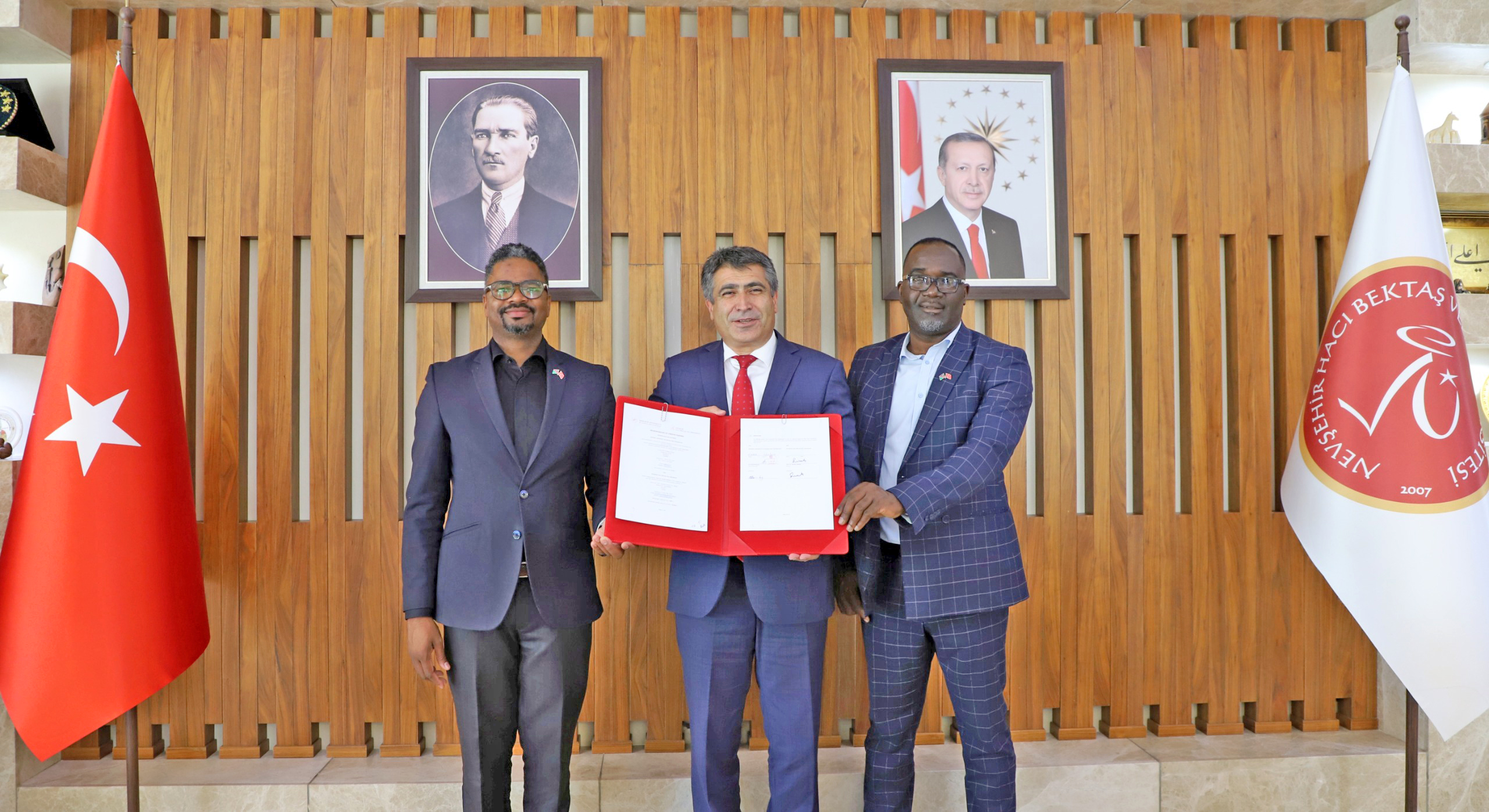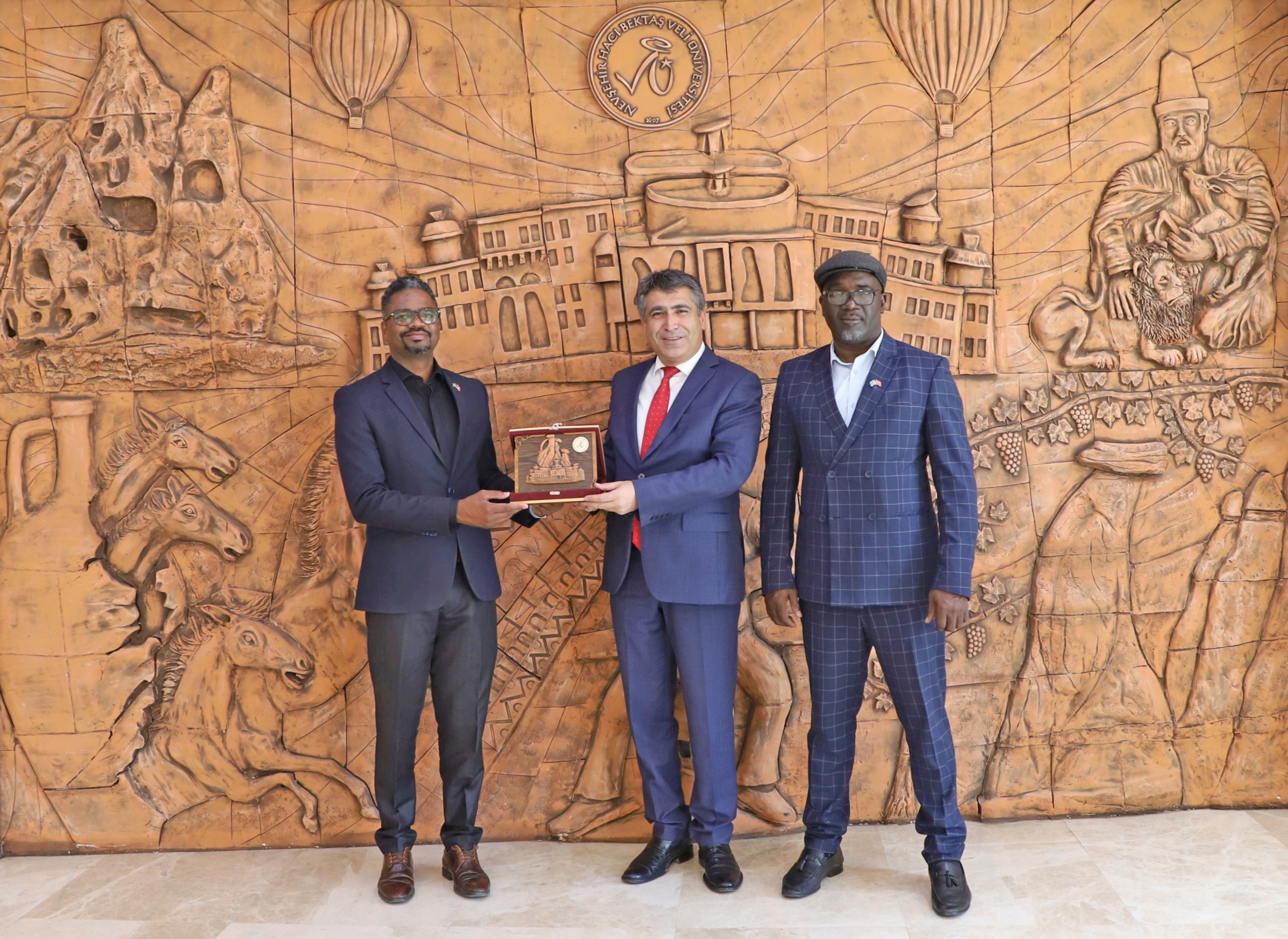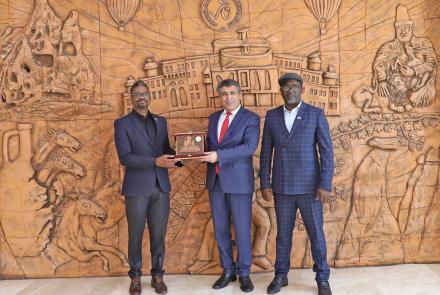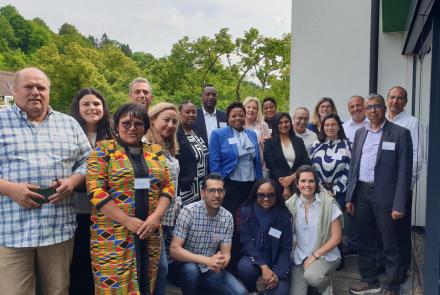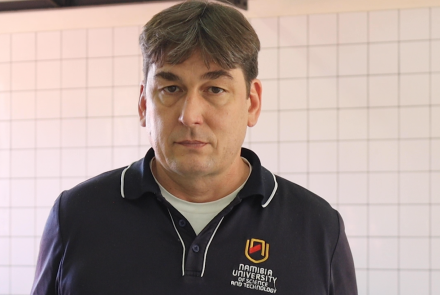NUST and NEVÜ Strengthen Strategic Global Collaboration
NUST’s DVC Research, Innovation and Partnerships, Prof. Colin Stanley and Advisor Prof. Klemens D. Awarab visited Nevşehir Hacı Bektaş Veli University (NEVÜ) to explore academic and scientific collaboration opportunities. Hosted by NEVÜ Rector Prof. Dr. Semih Aktekin, the visit led to the signing of a Memorandum of Understanding to advance academic excellence through research, student and staff exchange, while fostering innovation through international collaboration. The cooperation will span multiple innovative fields from tourism and sustainable development to agriculture, health, and technology reflecting both universities’ institutional pride and forward-looking vision for growth.
Building on a strong foundation (for example, a TİKA-supported tourism education programme at NUST), the universities are expanding collaboration in Tourism and e-Tourism. This includes linking the NUST Hotel School with NEVÜ’s Faculty of Tourism in Cappadocia to create new educational opportunities and cultural exchanges. Plans are underway for a student exchange programme in hospitality and tourism with English as the medium of instruction and a faculty/professional staff exchange to share expertise. Both institutions will focus on sustainable tourism practices and digital tourism (e-Tourism) innovation, leveraging support from the Turkish Cooperation and Coordination Agency (TİKA) to enhance training and curricula. These initiatives will not only enrich students’ learning experiences but also promote cross-cultural understanding in the tourism sector.
Another key area is Technical and Vocational Education and Training (TVET), particularly in agriculture. NUST and NEVÜ are partners in the EU-funded “Strengthening Agricultural Sector through ATVET” (SAS.ATVET) project, which is introducing new vocational qualifications to boost Namibia’s agricultural sector. As part of this collaboration, NEVÜ experts have conducted training-of-trainers workshops in Windhoek, sharing modern teaching techniques with over 20 Namibian agriculture instructors. This effort is strengthening the skills of local trainers and improving the quality of agricultural education. Over the three-year project, the partners will develop curricula and materials for new farming management courses, aligning training programmes with Namibia’s development needs. By empowering youth with practical agri-business skills and building capacity among educators, the two universities are contributing to sustainable growth and food security in the region.
NUST and NEVÜ are also joining forces in Health Education and research. Leveraging NUST’s strong programmes in biotechnology and health sciences and NEVÜ’s research expertise in areas like molecular biology, the universities plan to collaborate on advancing biomedical research and public health outcomes. This cooperation will involve joint research initiatives for example, in biotechnology applications and disease prevention as well as exchange of knowledge in curriculum development for health-related programmes. By pooling their strengths, NUST and NEVÜ aim to innovate in areas such as healthcare technology, improve training for healthcare professionals, and ultimately enhance community well-being. From laboratory collaborations to public health workshops, these efforts illustrate a shared commitment to innovation in healthcare education that will benefit both nations.
In addition to the above, the NUST–NEVÜ partnership will extend into other exciting fields of mutual interest:
- Geographic Information Systems (GIS) & Remote Sensing: The universities will share expertise in geospatial technology and data science. NUST’s robust GIS and remote sensing programmes provide a strong foundation for joint projects from environmental monitoring and land management to smart city planning. By collaborating in this area, both institutions can innovate in how spatial data and remote sensing imagery are used for research and decision-making, benefiting sectors like urban planning, agriculture, and disaster management.
- Indigenous Knowledge Management: Both institutions recognise the value of indigenous and local knowledge. NEVÜ’s Cappadocia region offers rich cultural heritage resources (exemplified by the university’s Living Heritage Museum), while NUST has pioneered digital initiatives to preserve Indigenous Knowledge in Namibia. Together, they plan to develop innovative ways to document, manage, and share traditional knowledge from collaborative research on cultural heritage to using digital platforms that ensure this wisdom is passed to future generations. This cooperation not only celebrates cultural diversity but also encourages academic innovation in how traditional knowledge is integrated into modern education and research.
Overall, these new areas of cooperation underscore an ambitious and enriching alliance between NUST and NEVÜ. The two universities are proud to harness their strengths in pursuit of academic excellence, global citizenship, and sustainable innovation. Together, NUST and NEVÜ are setting a shining example of international cooperation in higher education driving progress in tourism, agriculture, health, technology, and culture. The future looks bright on this journey of shared knowledge and growth!
